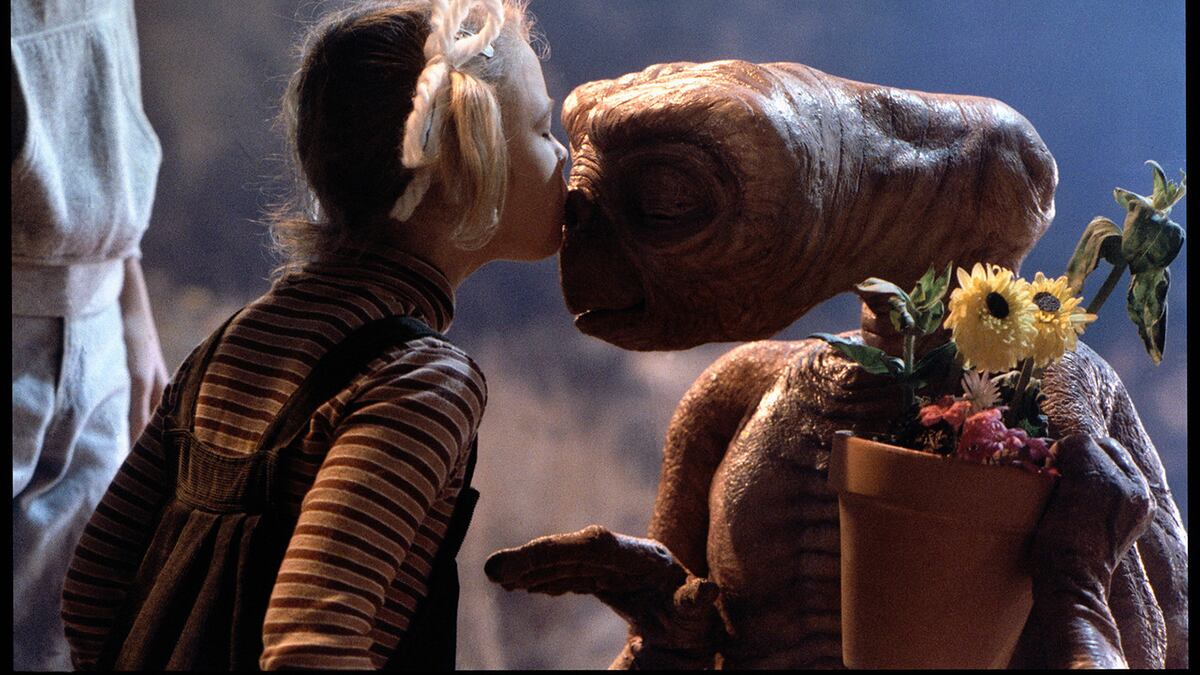Reflecting on the final nights of March's Portland International Film Festival cut short by COVID-19, NW Film Center director Amy Dotson says guests have since described it "like the last night on earth."
A glance four months backward is bittersweet for Dotson, who was leading her first PIFF in the directorial role. Her goals for opening the festival's "doors a little wider" to audiences and marking "a new day" were on track: Dotson says attendance by first-time guests was up 40 percent, and PIFF was on its way to fiscal positivity for the first time in "many years."
Then, the coronavirus leveled the festival, the entire film exhibition world, and several local filmmakers' world premieres. In pursuit of any silver lining, it also leveled the industry playing field.
"The [film] world is a lot more unbound four months later," Dotson observes. "A lot of silos and hierarchies and 'Well, you're this cool festival that's been around forever' and 'You're just this small festival,' all that just exploded in the first month of trying to figure out what was going to happen."
Dotson describes video meetings—sometimes more like "group therapy sessions"—from the spring in which NWFC staff, local artists and industry leaders from New York and Los Angeles discussed shared challenges and collaborating in unprecedented ways. Now, Dotson asserts, the Film Center has been "able to pivot" in ways more entrenched organizations haven't.
The results this summer are threefold:
• The Cinema Unbound Drive-In Theater Aug. 6-Sept. 27 at Zidell Yards.
• The Portland Art Museum debut of the Venice Biennale's virtual reality programming Sept. 2-10.
• A three-pronged fund (one taking applications now) supporting Northwest filmmakers and new media artists through COVID-19 and beyond.
Given the vague to nonexistent timetable for reopening theaters nationwide, the Cinema Unbound Drive-In looks to capitalize on perhaps the only safe way to watch movies in public: from cars. Zidell Yards will host up to 250 moviegoers, by state ordinance, every Thursday, Friday and Saturday night through September. Slated titles range from Labyrinth to John Lewis: Good Trouble to The Birds. Performances or short programs by Northwest artists will precede every screening, and tickets are on sale now.
"We want that unexpectedness [in the curation]," Dotson says. "Everyone who comes to Do the Right Thing may not come to Creature From the Black Lagoon, and that's OK."
If the drive-in cuts toward the retro, September's virtual reality partnership with the Venice Biennale pushes toward the sharpest edge of NWFC's new media goals. Since 2017, the Venice Biennale—the world-renowned arts organization under which the Venice Film Festival operates—has funded and premiered VR projects. In light of the pandemic, this year marks the first time the Biennale will export its exclusive VR work to "delegates" around the world, with the Portland Art Museum of acting as its only American outlet. From Sept. 2 to 10, Dotson says Portlanders can come to the museum, safely don VR headsets and be transported.
"At this moment, to be able to quite literally walk in someone else's shoes or take up space in a place that might be imaginary or might be deeply lived," she says, "we're psyched."
Finally, the NWFC debuted the Re:Imagine Artist Fund this month with three branches of grants to support Oregon, and Clark County, Wash., cinema and new media artists. The fund comprises $2,000 relief grants (currently in review), $5,000 grants for artists reimagining their practices post-COVID, and a longer-term third phase of stipends for "artists who are currently less represented—specifically Black artists and filmmakers, those who identify as women and LGBTQIA+."
"People [in Portland], more than other places I've had the pleasure of living and working, are artists of multidisciplines," Dotson says. "They see themselves as artists first. Even still, there are very few funds melding fine arts and cinematic storytelling."
Though it could be years before we see the projects born of this funding, long-term ambition and short-term improvisation have become mandatory in Dotson's still nascent tenure. As a result, the NW Film Center is in a flurry of motion at a time when so many organizations are forced into holding patterns. "It's all a grand experiment," Dotson says. "Today is another grand experiment."
SEE IT: For more information about Cinema Unbound Drive-In Theater, the Venice Biennale's virtual reality programming, and the Re:Imagine Artist Fund, visit nwfilm.org.

